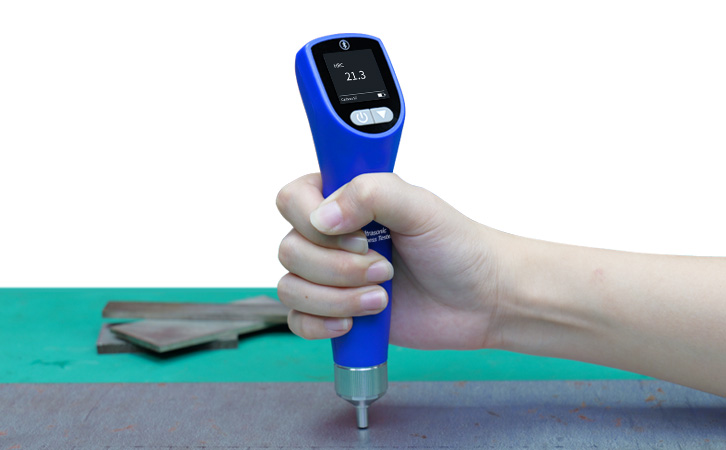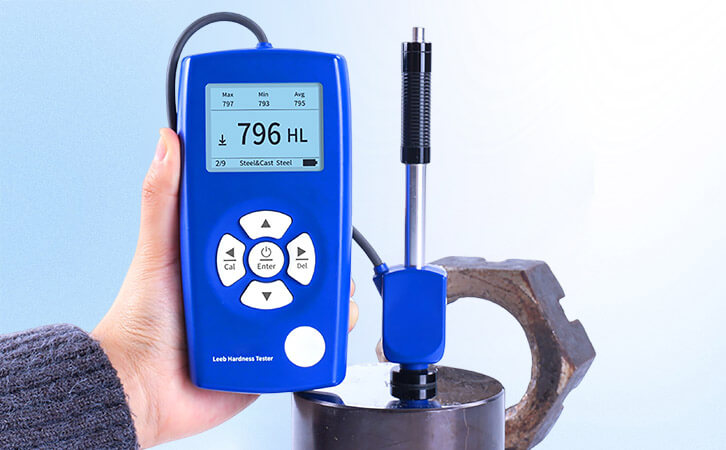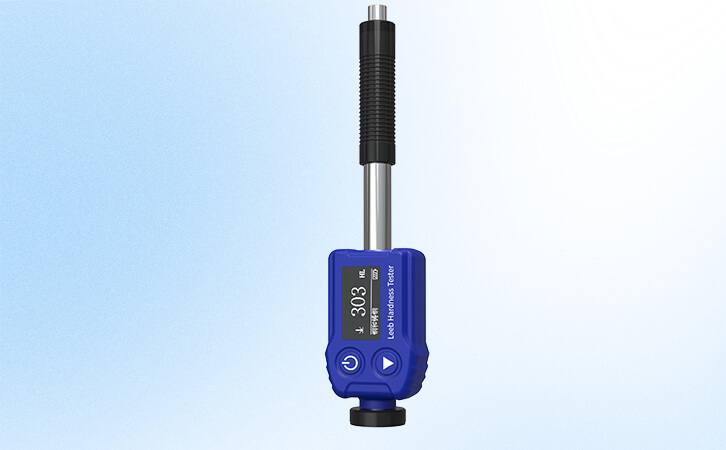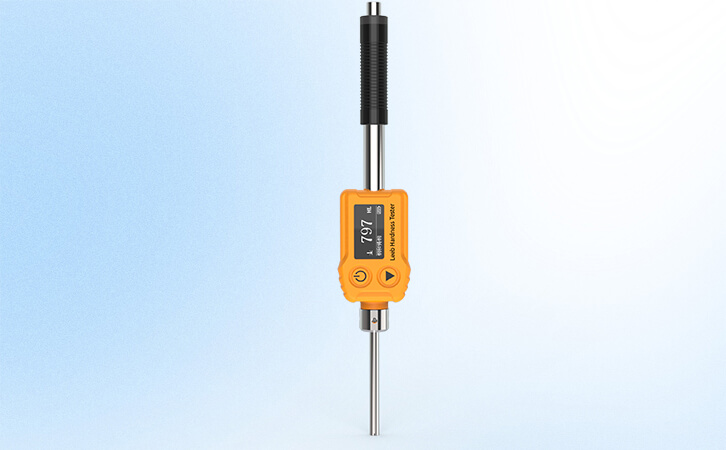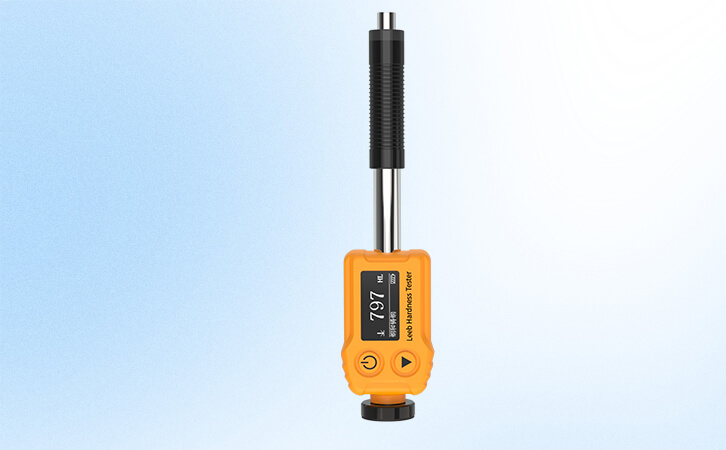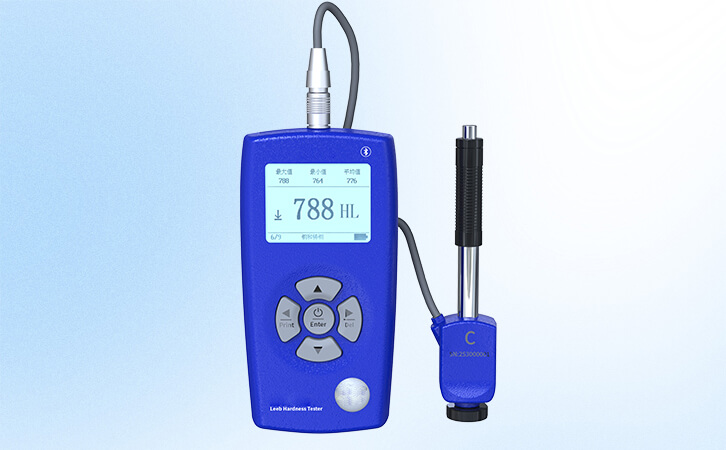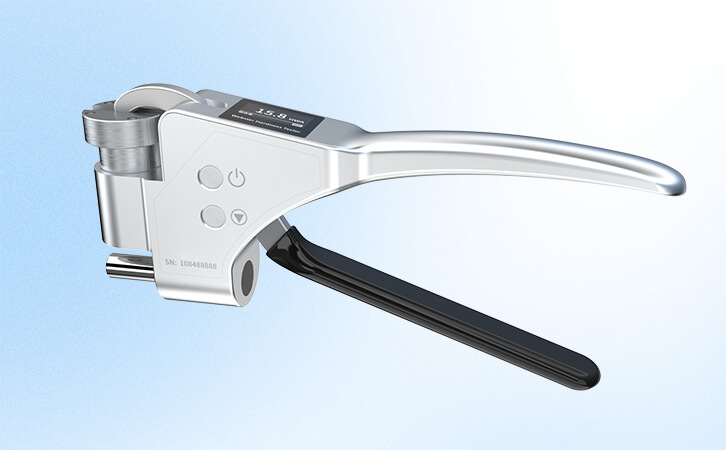Based on the principle of Leeb hardness measurement, the Leeb Hardness Tester, otherwise called as Leeb Rebound Hardness Tester, is considered as one of the most commonly used tools to test the hardness of the metal. It is a type of non-destructive testing tool used to inspect large sized workpieces weighing above 5 kg. Besides the hardness, it also measures the strength of materials.
Leeb Hardness Tester is suitable for testing various metal materials such as alloy steel, stainless steel, gray cast iron, ductile iron, etc.
86256 Ultrasonic Hardness Tester
The 86256 Ultrasonic Hardness Tester uses UCI technology for non-destructive testing of metals and alloys as thin as 5mm, including coatings, flange edges, wheels, turbine rotors, thin plates, and welds.
86251D Leeb Hardness Tester
Suitable for measuring iron, copper, steel and other metal materials
Using advanced digital probe technology, test accurately
The probe has a built-in direction sensor to automatically compensate the measurement errors in different impact directions
A variety of hardness scales switchable, eliminating the tedious manual check table
86252D Leeb Hardness Tester
Pen-type Leeb hardness tester
Dual-coil technology
Extraordinary accuracy:±6HL
Perfect for quick and reliable testing on site
86252DC Leeb Hardness Tester
Integrated handheld hardness tester
Spring loaded with a special loading stick
Dual-coil technology
Extraordinary accuracy:±6HL
86252DL Leeb Hardness Tester
Adopt impact device DL
Suitable for hardness measurement in confined spaces such as grooves and gears
Advanced dual coil technology for good repeatability and high accuracy
86252C Leeb Hardness Tester
Adopt Impact device C
Ideal for testing the hardness of surface hardening layers and parts with small masses or thin thicknesses
Dual coil technology for good measurement accuracy and repeatability
86253 Multi-probe Leeb Hardness Tester
1.Equipped with D\DL\DC\C four different impact devices
2.Support Bluetooth APP, massive data storage
3.Optional Bluetooth wireless printer, direct printing of measurement data
4.Double coil and digital probe, accurate measurement
86255 Webster Hardness Tester
1. Digital display design, 0.1HWA high resolution
2. Automatic data locking, easy to read
3. Providing a variety of hardness scales to switch
4. No-disassembly reference calibration and hardness calibration technology
5. High precision, pass authoritative metrology inspection
